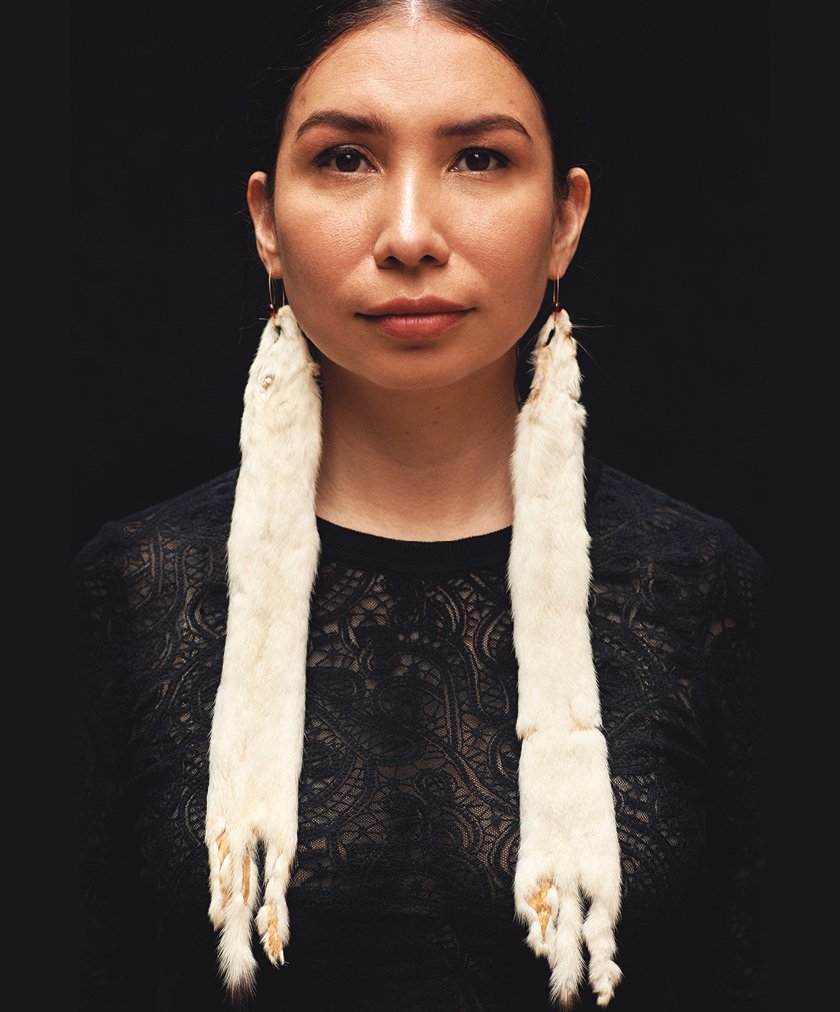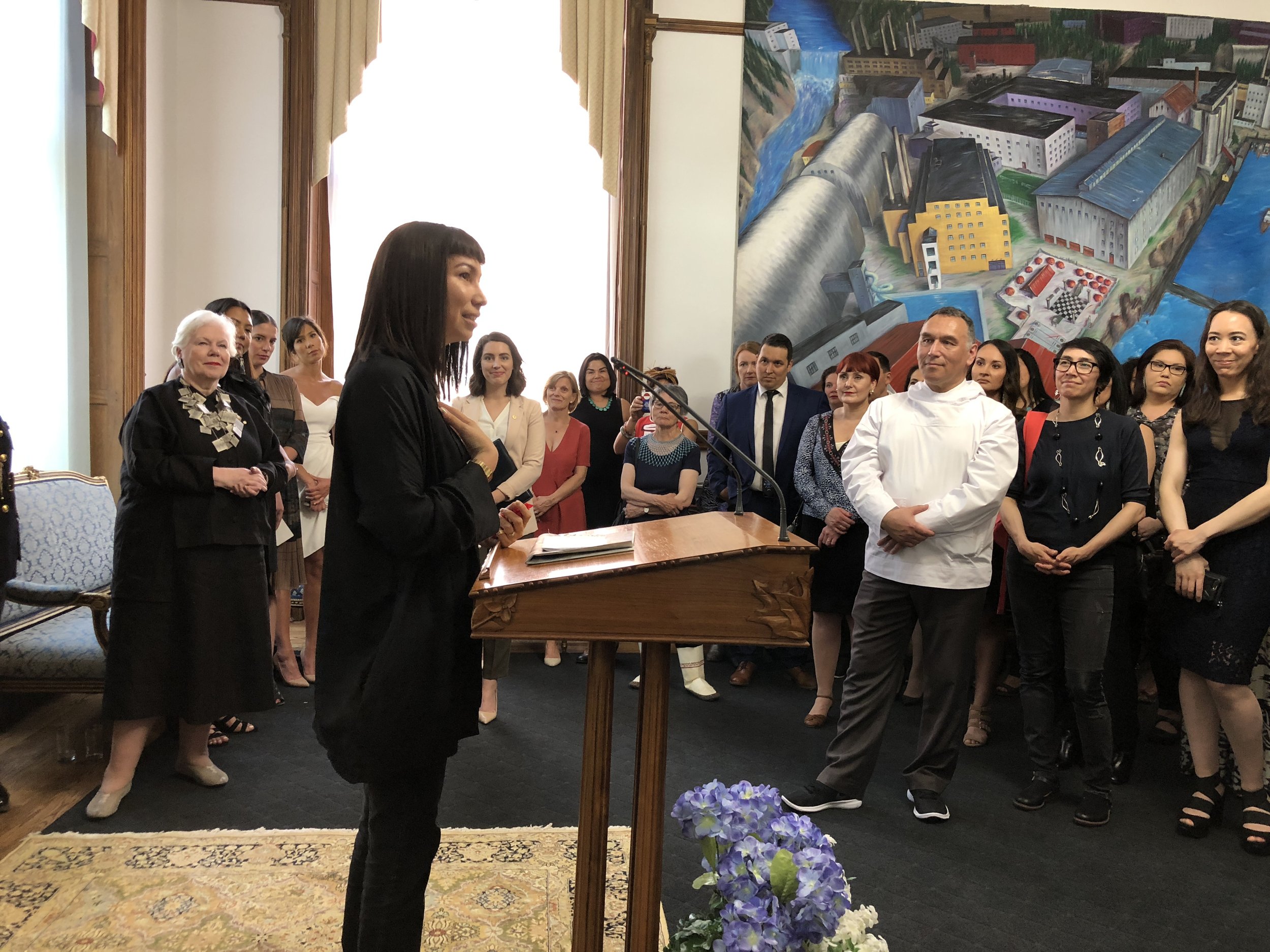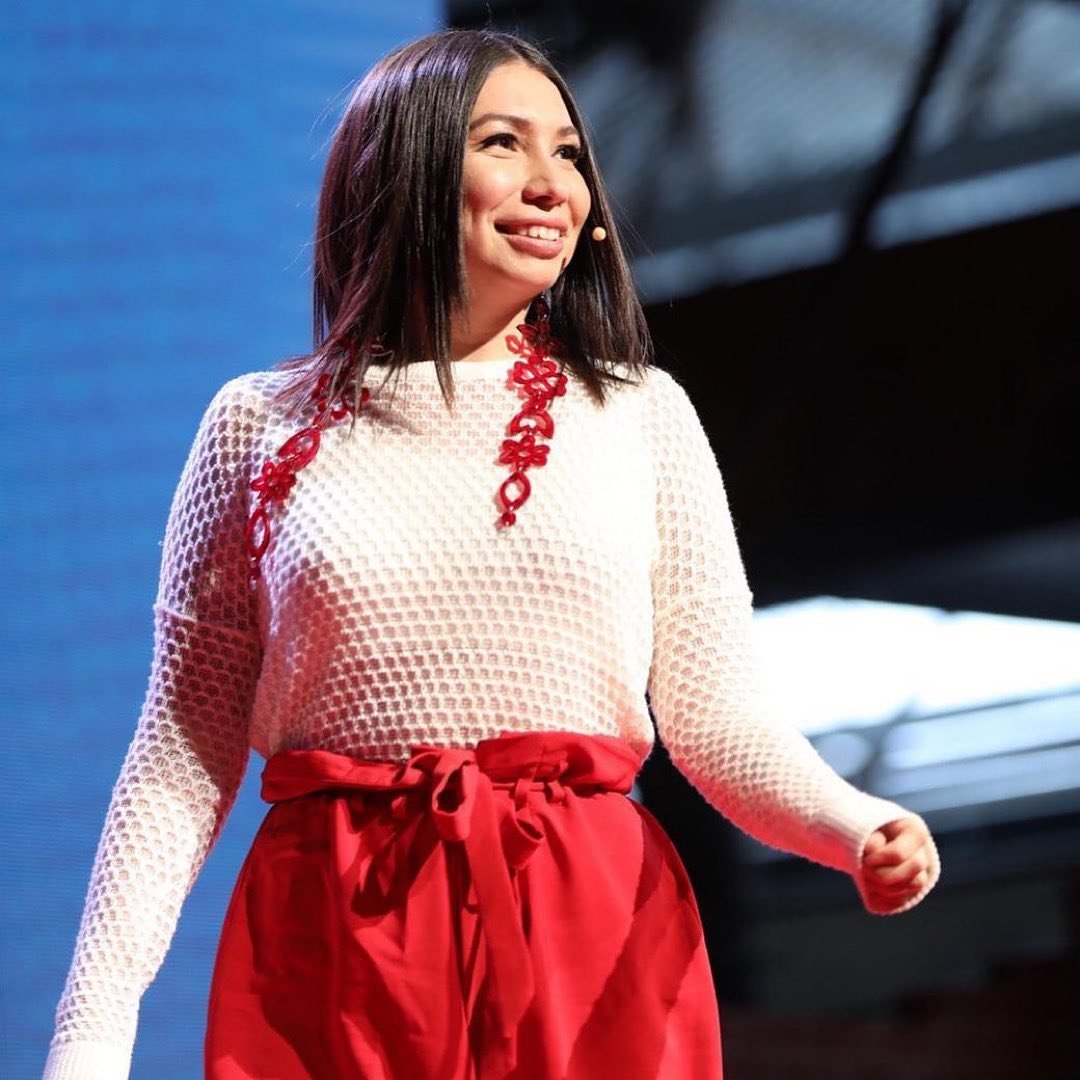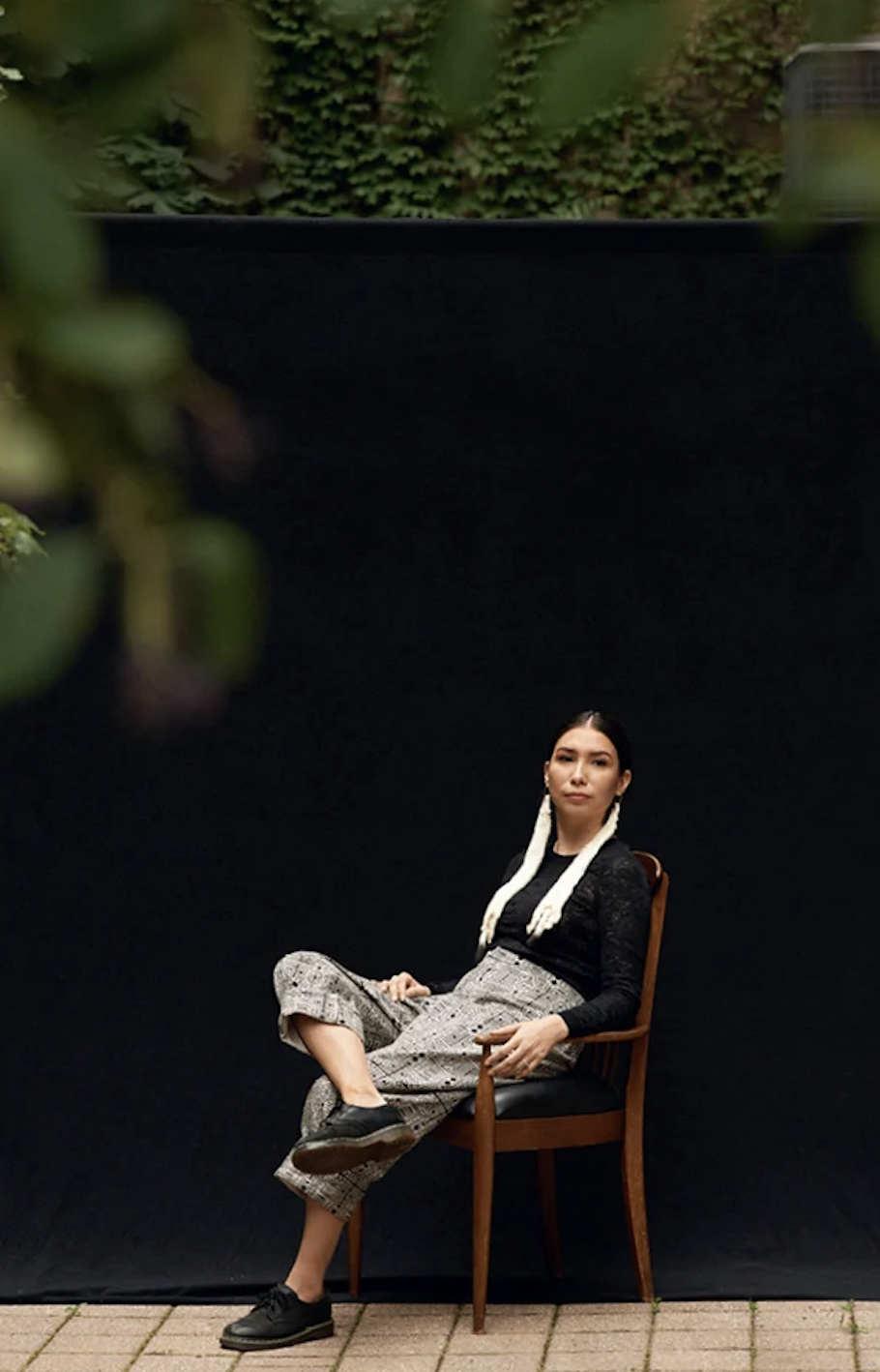Why thinking sustainably is innately an Indigenous cultural practice & why we must see Indigenous designers on a global stage
In episode 287, Kestrel welcomes Sage Paul, an award-winning artist and designer, to the show. An urban Denesuliné (Den-a-sooth-leh-nay) woman based in Toronto and a member of English River First Nation, Sage is the artistic director and founder of Indigenous Fashion Arts.
“There’s all this talk about sustainability and you know buy this or buy that, but the truth is, is that these corporations that are preaching this are just making too much. They are making too much, they are mass producing it, and the way that they mass produce it is unsustainable for the Earth. And so, it just doesn’t seem like they’re painting the full picture for everyone. But then going back to cost — is the fact that people aren’t getting paid enough in order to purchase items that are quote unquote sustainable, because the only thing that’s accessible are these mass-produced items.”
-Sage
You may have noticed that the idea of *sustainability* is often aligned with luxury or having extra money to invest in less harmful things or less polluting options – for example, an electric car or organic produce or a more thoughtfully-made garment. These options generally cost more than the conventional option in our society.
While there are a lot of narratives challenging the eliteness of sustainability today, the mainstream conversation has been led by a very white and capitalist-centered idea that promotes buying this, instead of that product.
Like we talked about on last week’s show with Kristine of Doen, the sustainability conversation has been very binary in its approach – very good vs bad, and often, oversimplifies what quote unquote sustainability could look like.
Through several conversations on the show, we’ve explored how resourcefulness is a grounding pillar of true sustainability. But it’s not just resourcefulness, it’s also culture.
As this week’s guest shares, thinking sustainably and locally is innately an Indigenous cultural practice – and for many folks, it’s not anything *shiny and new* to be learned – it’s instead, an integral part of their own history and identity.
Of course, we all have a lot of unlearning and relearning to do – from an individual to a community to a corporate to a governmental level. At the same time – it’s important to acknowledge where some of the true knowledge lies in order to collectively move forward in a less harmful way.
I love how this week’s guest reminds us that it’s OK to actually ask the industry to change the way it works.
Quotes & links from the conversation:
“Sustainable Clothing Is Fashion-Forward. Just Ask Innovative Indigenous Designer Sage Paul”, article in CBC that Kestrel mentions
“I was raised with the values of only taking what you need and sharing those extras that you don’t need. And leaving no trace behind wherever you are. Using everything of what you do take, and giving thanks to those items. There’s also — in a lot of Indigenous cultures — there’s the value and understanding and belief that everything is living, everything has a spirit. So in that way, you would treat things as you would a friend or a family member, even though these are inadimate objects. So, your respect for these inanimate objects become far greater than just a disposable item or a short-term item that you purchase.” -Sage (11:22)
“Changemaker Sage Paul On Building A Future For Sustainable Design”, article in FashionMagazine.com that Kestrel mentions
“Your Clothes Are The Most Political Choice You Make Every Day”, TedTalk by Sage which was given in 2020
Christian Allaire, writer at Vogue that Sage mentions — listen to the Conscious Chatter episode featuring Christian
White Milano, trade show that Indigenous Fashion Arts is taking part in this year
Section 35, Indigenous-owned brand that Sage mentions










